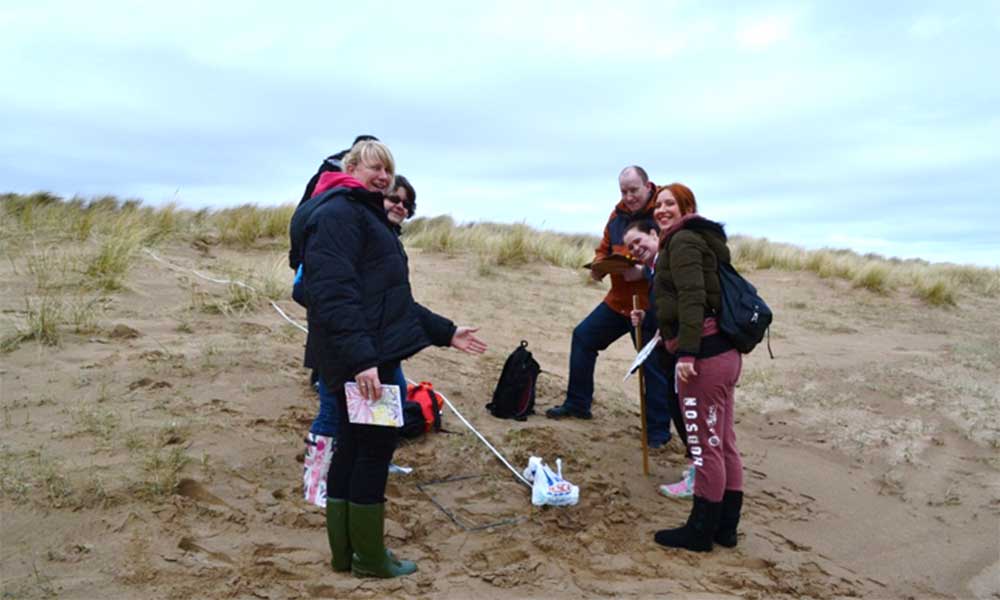Seeing Red
Field trips are an essential practical and experiential part of teaching, learning and researching the natural environment for degrees and research programmes across biology and geography.

However, there are many barriers to bringing people into the field and some of these barriers can be particularly discriminatory towards women. To address these barriers and facilitate access to field experiences for women, a team in the School of Health and Life Sciences has been developing measures aimed at greater inclusivity, some of which are specific to women. A key part of this strategy is the development of workflow authorisation for field trips which features a checklist of inclusivity measures.
When planning taught sessions in the natural environment we try as much as possible to keep the similar time slot as used for classroom teaching and attempt to blend as much as possible a mixture of short field trips and residential trips. This enables learners with caring responsibilities to participate in field trips.
Increasingly, a high proportion of learners express difficulties of a psychological nature, such as anxiety, prior to taking part to group activities in an un-familiar environment. We have seen this from our experience but it has also been evidenced in national studies which shows that young women are three times more likely to suffer some form of mental health than young men. To help those who are anxious about group activity in an un-familiar environment, we have integrated field preparation sessions into the programme and are currently developing a Minecraft tool to give students an opportunity to familiarise themselves with field work techniques before stepping outdoors. To enable students to build up field skills gradually we start field work in a familiar destination such as the university campus.
From our experience, we found that some of the anxiety surrounding field trips came about as a result of concerns in relation to availability of toilet/hygiene facilities during field trips. In response to this, staff in the School of Health and Life Sciences have adopted an innovative approach to this. Our new student field guides now identify and signpost, in advance, all opportunities for toilet / hygiene facilities during visits. Typically we plan at least two stops (with plenty of time) into each trip. In addition, the guides highlight the 'period pack' carried along with all field equipment, making sure that students who have periods during a field trip are able to access toiletries if required, hopefully reducing anxiety.
Period and Menstrual Hygiene Equality
Guide
Toilet stops in the field: An educational primer and recommended best practices for field-based teaching
